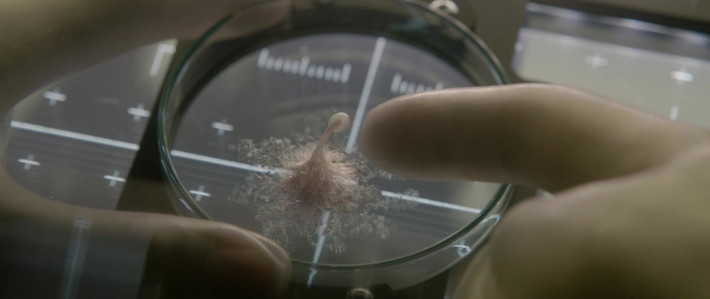Fifty Shades Freed
by Matt Weiner
Boiling down the Fifty Shades movies into a capsule summary has always felt a bit like playing Mad Libs with a head injury, and Fifty Shades Freed gleefully continues the trend.
Anastasia Steele and Christian Grey (Dakota Johnson and Jamie Dornan, each blinking out Morse code to their agents throughout the franchise) are now married. Christian’s dominant side causes fresh problems for Ana at work, but not as much as her ex-boss (Eric Johnson) returning to stalk the entire Grey family for reasons both mysterious and incredibly obvious.
Having watched the entire series, it’s hard not to feel like additional complaining is punching down, so here are some nice things about Fifty Shades Freed:
• This is the first film in the franchise that earns intentional laughs, an incredible improvement all on its own.
• All the shots, while filmed so perfunctorily that you forget what you’ve just seen nearly in real-time, are in focus.
• There is what amounts to a five-minute Audi commercial, which is helpful if you are considering buying or leasing a new Audi.
• According to the credits, Marcia Gay Harden and Danny Elfman received paychecks from this, and although you can hardly feel their presence on screen or in the score, I cherish them both and I hope they buy nice houses from this because they deserve it.
But the other major improvement in the franchise can’t be separated from the movie’s biggest flaw. The good news: with Ana and Christian having settled into betrothed BDSM bliss, the film (written by Niall Leonard and directed by James Foley) devotes less time to their tepid romance and more time allowing the characters to simply be themselves as they get caught up in a sordid thriller.
Here’s the bad news. Allowing these characters to be themselves suffers from one crucial flaw: every single character in the series is boring to an extent that’s almost an achievement in its own right.
And just like in the first two films, the sexual chemistry between Ana and Christian never clicks on screen. Although since Freed revolves more around the couple’s marital gamesmanship than their “erotic” courtship, the tension occasionally works this time. And even produces some real laughs.
While the movie wraps things up neatly for Ana and Christian—albeit in a comically abrupt way I guess is a clever callback to the bizarre pacing of the previous films—it doesn’t answer the question of exactly who this movie is for.
There’s plenty of nudity, but it’s clinically divorced from any recognizable human emotion. Such short shrift is given to character development that I can’t imagine fans of the lengthy books have been satisfied. There’s a mystery plot, sort of, but nothing you couldn’t get from a made-for-TV movie and save the cash.
But if you’ve made it this far through the series, Fifty Shades Freed is the most competent of the bunch. And at least this one can be watched with a clear conscience knowing that the actors are as freed from contractual obligations as their characters are rid of emotional baggage.









